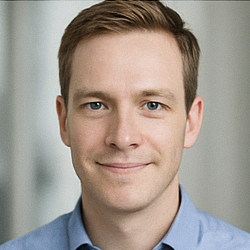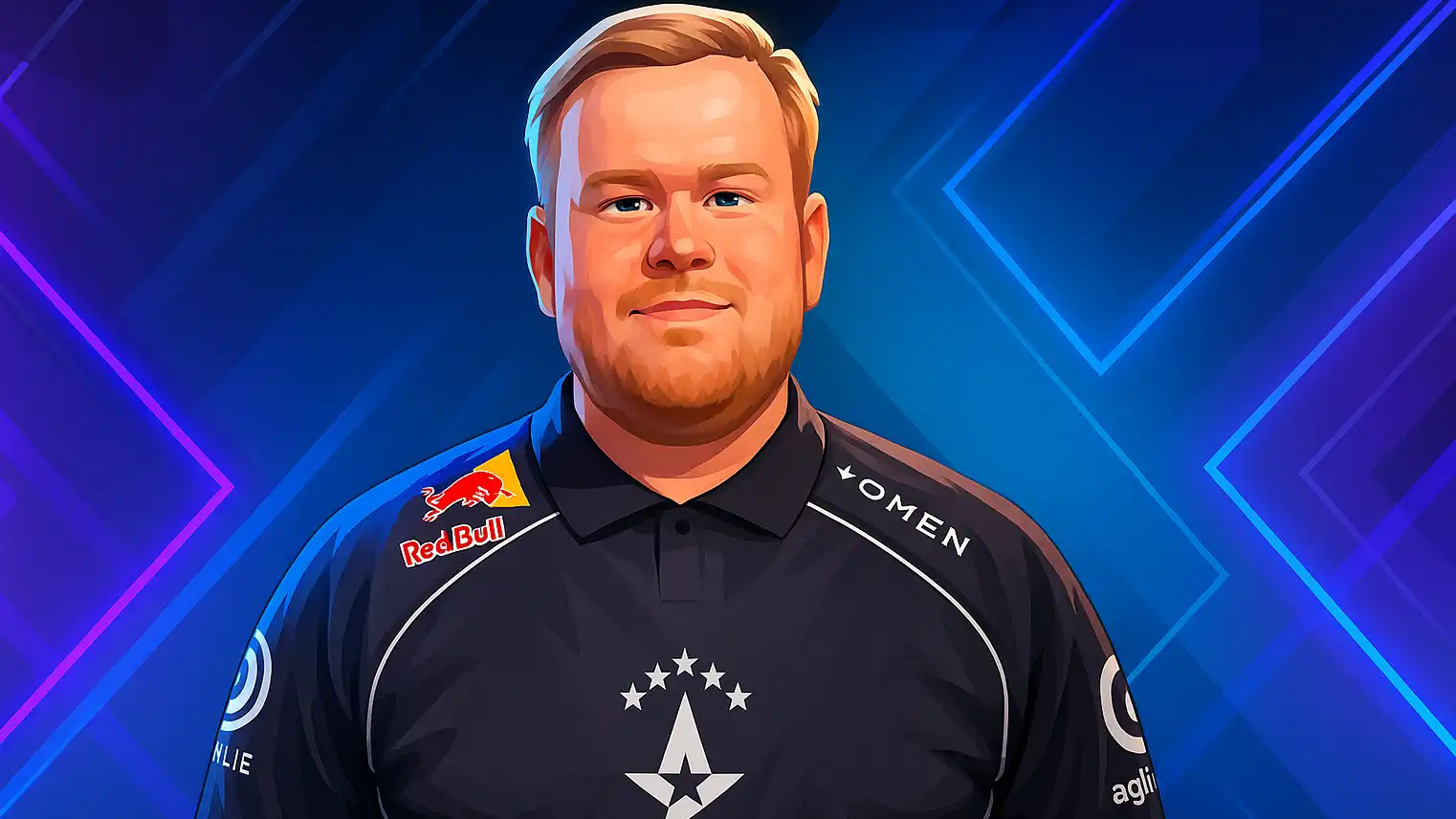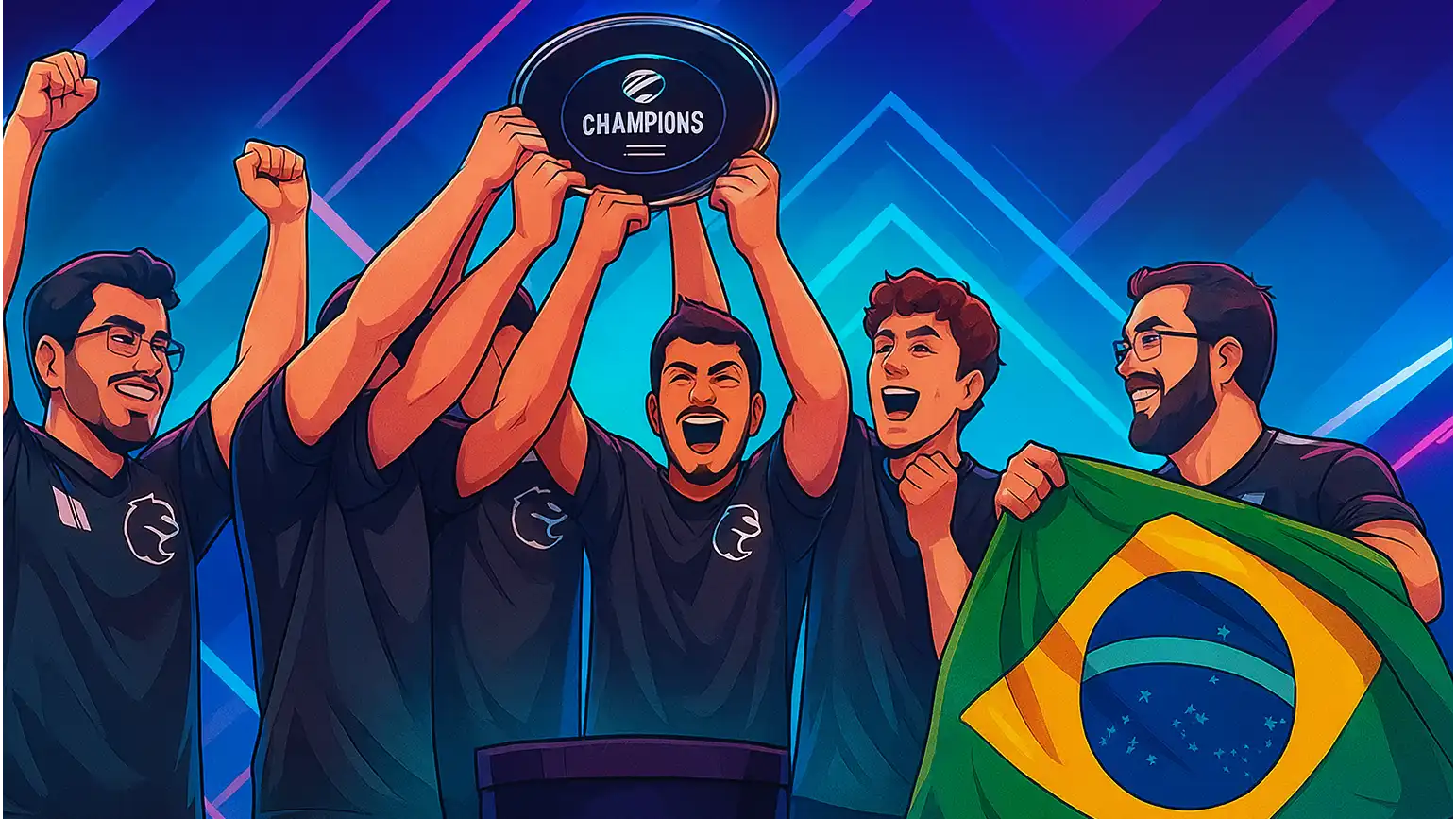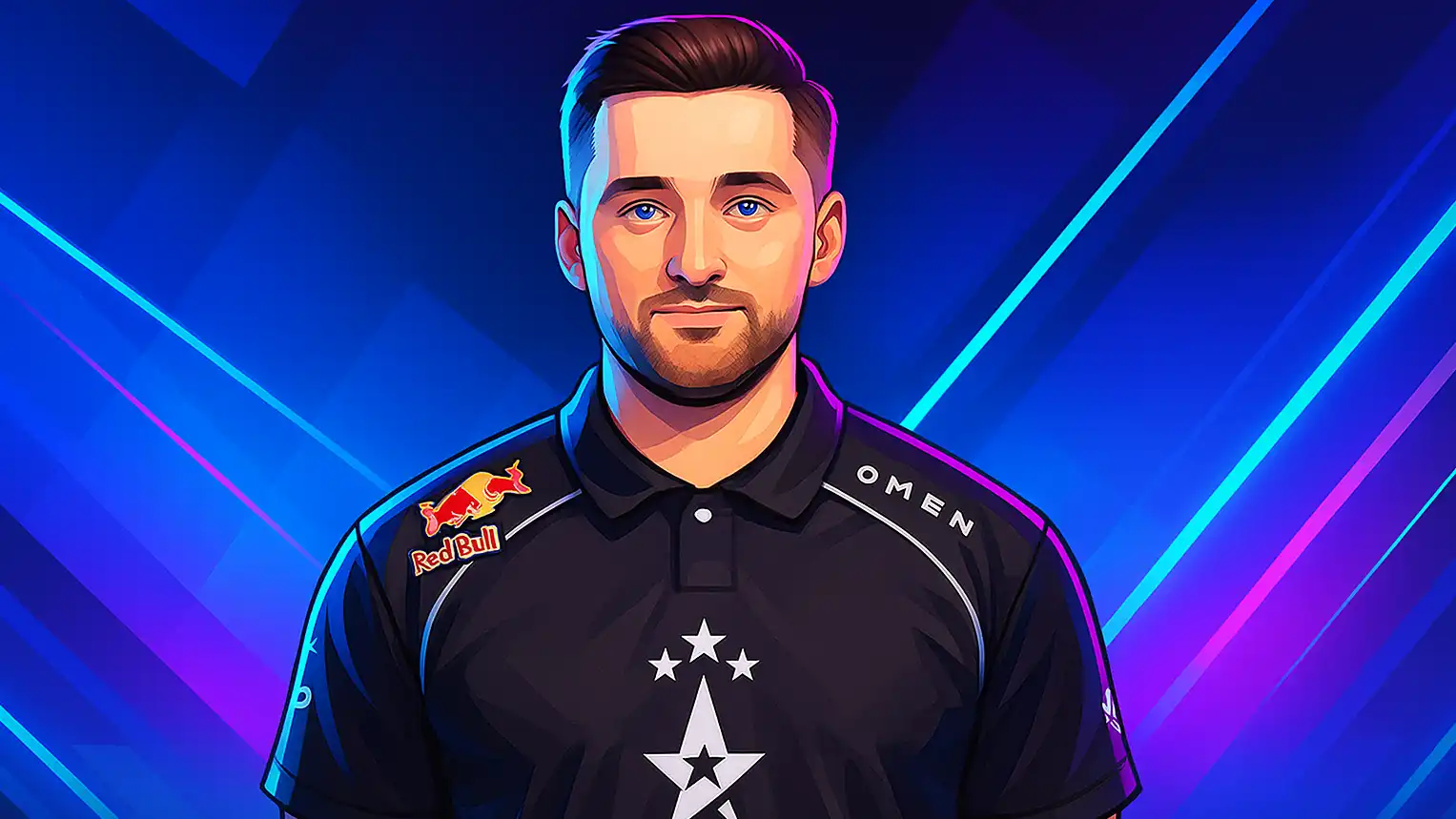Magisk: chasing his “reliable rock” form as Astralis open IEM Chengdu with a win
Emil “Magisk” Reif started his second Astralis stint in style at IEM Chengdu 2025, topping the scoreboard in a tense 2–1 victory over Natus Vincere (16–13 Nuke, 10–13 Mirage, 16–13 Inferno).
Despite the strong debut, the 27-year-old four-time Major winner was cautious about declaring himself “back”. In an interview with HLTV after the match, he summed up his mindset with a single line that became the headline:
“I still think I have some way to go… to be the reliable rock I know I can be.”
From Falcons fatigue to Astralis stability
Magisk’s comments make a lot more sense in the context of his last one and a half years. After leaving Vitality at the end of 2023, he joined Falcons, a big-budget project that never truly stabilized. Falcons had flashes of good CS — close series against MOUZ and FaZe, and a run through BLAST Fall Showdown — but they repeatedly fell just short.
By late 2024, the Saudi-backed organization benched Snappi, dupreeh and Maden, announcing plans to rebuild around Magisk after a failed EU RMR. Internally, that project was tough. On HLTV Confirmed, Peter “dupreeh” Rasmussen later described the Falcons situation as “a very big mess… that ended up being uncontrollable”, saying the team atmosphere and constant changes made it extremely hard to succeed.
Magisk himself tried to stay positive through 2024–early 2025. At BetBoom Dacha Belgrade, he talked about Falcons’ “modest improvements” and their need to play as many officials as possible to learn and grow together. At PGL Cluj-Napoca 2025, after Falcons beat Eternal Fire to reach the semi-finals, he told HLTV he was “very happy about winning today” and that the team was “showing good improvements” while he took “every game with a big smile” as they gained stage experience together.
From the outside, teammates and analysts could see how much weight he was carrying. In an interview with Pley.gg, dupreeh said that constant roster changes and eroded trust made it difficult for Magisk to perform at his usual level, but stressed that Falcons initially viewed him as the core piece to build around because he was still “a guy you could rely on.”
Ultimately, the rebuild never fully clicked. After the BLAST.tv Austin Major cycle, Falcons benched Magisk in June 2025, replacing him with Maxim “kyousuke” Lukin. On September 1, the organization formally released him from his contract, ending his time with the team.
Looking back now from Chengdu, Magisk openly admits how much that period wore him down. In the new HLTV interview he explains that one and a half years on Falcons “drained” him because he’s a person who “needs stability” and was constantly dealing with roster changes, new teammates and shifting philosophies. Instead of focusing on refining his own game, the staff’s attention was often on integrating newcomers, which he feels slowed his development and hurt his confidence.
“Home” again: Astralis 2.0 and the weight of legacy
Magisk’s return to Astralis in September 2025 was one of the biggest storylines of the off-season. Astralis announced that he would replace Martin “stavn” Lund, who stepped back for personal reasons, reuniting Magisk with the organization where he won four Majors and earned a Major MVP award.
In his first interview back in red at FISSURE Playground 2, he sounded genuinely relieved just to be competing again:
“I just wanted to get back and play Counter-Strike, because that’s what I love to do.”
He also described wearing the Astralis jersey again as both “weird” and comforting, saying that despite the changes in staff and roster, it still feels like home.
The move was widely framed as a symbolic homecoming. Esports Insider noted that Magisk’s first event back would be FISSURE Playground 2 and pointed out how important a solid showing would be for Astralis’ position in Valve’s Regional Standings.Other coverage, like Dust2 and community features, emphasized that Astralis were turning again to one of the game’s most respected anchors, hoping he could stabilize a roster that had struggled to qualify for Majors in recent years.
Re-learning the anchor role in CS2
Against NAVI in Chengdu, Magisk’s impact wasn’t just about raw stats; it was about slotting into unfamiliar positions and still delivering. In the HLTV interview he explains that, on CT sides, he’s comfortable overall but is learning spots he never played before — for example B Short on Mirage. On Inferno, Astralis have moved him back into Pit, the classic anchor position he mastered in the old Astralis era, specifically to improve their defense and let him lean on his experience.
On T sides, he admits things are trickier. He’s not the primary lurker, but is again responsible for timings and map control in positions like Silo on Nuke — roles he needs to “get used to again.” He stresses that his focus is on working with Astralis’ staff to have maximum impact in the roles they need, fitting into the system rather than demanding it be built purely around him.
Magisk is clear that one good tournament isn’t enough. His whole identity as a player is tied to long-term reliability, not short hot streaks. As he puts it in the interview, anyone can put together a few good weeks — his strength has always been doing it “for multiple years” straight. That’s why he keeps repeating that there is “still some way to go” before he can truly call himself that “reliable rock” again.
He also mentions that he wants to eliminate the occasional “drop-off maps” that still appear in his series. For him, the key to success now is taking things one day at a time, focusing on what he can control, and making sure he improves a little bit every day.
Falcons, trust, and the bigger picture
Magisk’s story can’t be separated from how turbulent the Falcons project became. Besides dupreeh’s “big mess” description, other interviews and reports painted a picture of constant uncertainty: repeated roster changes, high-profile transfer rumors (including reported interest in NiKo), and a rebuild that first centered on Magisk and then moved on without him.
Magisk has consistently avoided blaming the Falcons organization itself, stressing that his struggles were more about the lack of stability and the emotional drain of starting over again and again with new teammates, roles and expectations.
In that sense, his return to Astralis — a team that historically thrived on structure and clearly-defined roles — is almost the perfect environment for him to try to rebuild that identity. The Astralis lineup around him now (device, jabbi, Staehr and HooXi) is very different from the legendary core he played with from 2018–2021, but the expectations from fans are similar: Magisk is supposed to be the calm anchor, the late-round problem-solver, the “rock.”
What Chengdu means for Magisk’s comeback
IEM Chengdu is more than “just another tournament” for Astralis. With The MongolZ forced to use a stand-in and a relatively soft side of the bracket, HLTV has already called it a real opportunity for Astralis to make an arena playoff and gain a huge confidence boost ahead of their first Major in over three years.
For Magisk personally, Chengdu is the first real test of whether his talk about long-term consistency can start turning into results. He’s already:
Reunited with the org where he became a four-time Major champion and Major MVP.
Shown he can still be Astralis’ best player in a high-pressure series against NAVI.
Publicly acknowledged the mental toll of his Falcons period and the need to rebuild his confidence and form step by step.
Whether he fully becomes that “reliable rock” again will depend on what happens not just in Chengdu, but across the entire season — especially at the upcoming Major. For now, though, Astralis finally look like they have the old anchor back, and Magisk has the stability he’s been craving.






